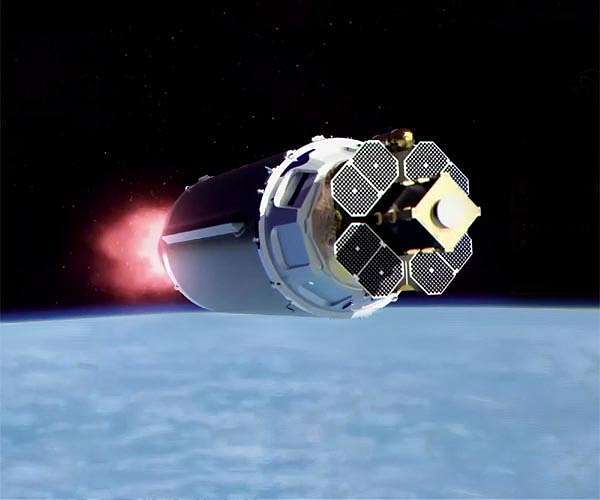28.02.2024

Explorer gained flight heritage during the CAPSTONE mission to the Moon (pictured) for NASA and forms the basis of the twin spacecraft Rocket Lab is developing for the ESCAPADE mission to Mars for NASA and the University of California, Berkeley.
Rocket Lab USA, Inc. (NASDAQ: RKLB) has announced its expanded family of spacecraft buses, a culmination of over four years dedicated to advancing its space systems capabilities. This development signifies a strategic enhancement in Rocket Lab's offering to the space sector, aligning with the diverse needs of its clientele across various missions.
Peter Beck, Rocket Lab's founder and CEO, emphasized the company's response to customer demands, "Our development, launch, and operation of spacecraft for a wide customer base revealed a consistent requirement: the need for spacecraft that are reliable, capable, and can be constructed quickly and economically. Starting with Photon, we've now broadened our family of spacecraft to address these needs through a line that combines high performance with scalability."
This family of spacecraft leverages common components and subsystems, reflecting Rocket Lab's commitment to in-house design and manufacturing. These elements include carbon composite structures, star trackers, reaction wheels, solar arrays, radios, and avionics.
Brad Clevenger, Vice President Space Systems at Rocket Lab, explained the company's approach, "Our vertical integration strategy allows for the swift, economic, and dependable delivery of spacecraft. This strategy balances commonality for cost-effective and rapid production while ensuring the spacecraft can be tailored to the specific demands of varied missions."
The lineup comprises four spacecraft, each designed for specific mission profiles:
- Photon: A cornerstone in Rocket Lab's offerings, serving as an integrated launch-plus-spacecraft solution for a broad range of missions in low Earth orbit.
- Lightning: Tailored for a 12+ year operational life in LEO, offering high power and radiation tolerance, suitable for telecommunications and remote sensing.
- Pioneer: A versatile medium delta-V platform accommodating payloads up to 120 kg for unique missions, including re-entry and dynamic space operations.
- Explorer: Designed for deep-space missions, equipped with large propellant tanks and avionics capable of navigating to Mars, Venus, the Moon, and beyond.
In support of this spacecraft family, Rocket Lab has invested in a state-of-the-art development and manufacturing complex at its Long Beach headquarters. The facility, equipped with extensive cleanroom and production spaces, is poised to meet the demands of commercial, civil, and national security customers.
With over 40 satellites awaiting production, Rocket Lab's introduction of its spacecraft family stands to significantly influence the space industry. This move not only enhances Rocket Lab's product range but also solidifies its position as a key provider of versatile and reliable space systems, ready to facilitate a myriad of missions from satellite constellation deployment to exploration of the solar system.
Quelle: SD
